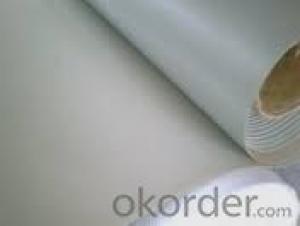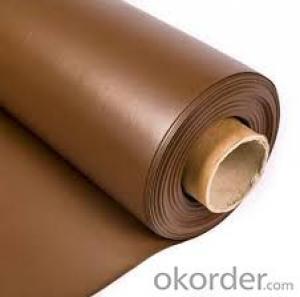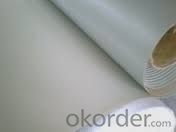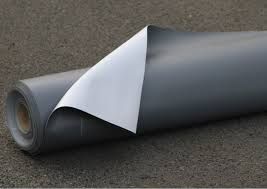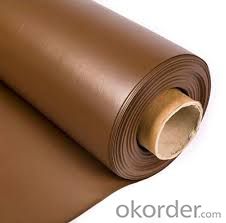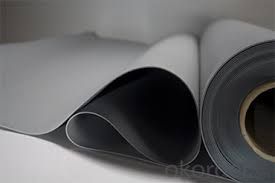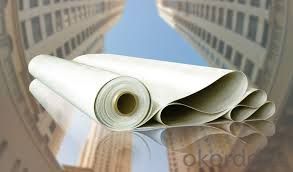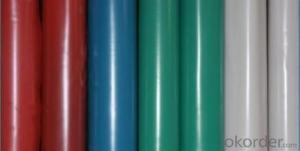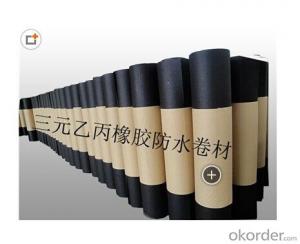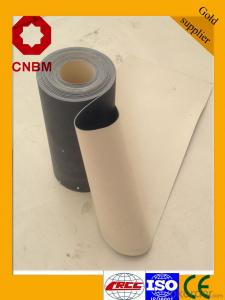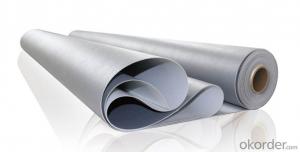Roof or Underground PVC Waterproof Membrane
- Loading Port:
- Tianjin
- Payment Terms:
- TT OR LC
- Min Order Qty:
- 2000 m²
- Supply Capability:
- 10000 m²/month
OKorder Service Pledge
OKorder Financial Service
You Might Also Like
Product description
Polyvinyl chloride PVC waterproof membrane is a kind of excellent performance of polymer waterproof material,PVC resin as the main raw material,add all kinds of special additive and anti-aging composition,the use of advanced equipment and advanced technology extrusion rolling is made.The product has the tensile strength and elongation high shrinkage of small,low temperature soft good,long life and other advantages, the products wide 1.2m to 3.0m, the thickness of 0.8-2.0 mm(special specifications can be customized),stable performance,reliable quality,construction is convenient.
Application Scope
The products are widely used in all kinds of civil construction,subway,tunnel,water conservancy,landfill site,chemical industry,metallurgy and other areas of waterproof seepage control,corrosion engineering
Features:
Excellent anti-aging property.
Puncture- resistant.
Welding construction,
High tensile strength, good elongation, good dimensional stability.
Good plasticity.
It has self-extinguishing from fire property.
Materials surface is smooth, fast color, stain resistance.
More wide, Wastage become less when being used.
Type:
N1—Exposed PVC waterproof membrane.
(It is mainly used as details treatment for exposed roof waterproof project)
N2—Non-exposed PVC waterproof membrane.
(It is mainly used as details treatment for non-exposed roof waterproof project)
L1—Exposed PVC waterproof membrane with fabric
(It is mainly used for exposed roof waterproof project)
L2—Non-exposed PVC waterproof membrane with fabric.
(It is mainly used for non-exposed roof waterproof project)
W1—Exposed reinforced PVC waterproof membrane .
(It is mainly used for steel structure roof exposed waterproof project)
W2—Exposed reinforced PVC waterproof membrane .
(It is mainly used for steel structure roof non-exposed waterproof project)
Advantages

Technical Parameters
No. | Item | Index | |||||
| 1 | Thickness of resin layer of the middle fabric ,mm≥ | - | - | 0.40 | 0.40 | 0.40 | |
| 2 | Tensile performance | Max tensile strength,N/cm ≥ | - | 120 | 250 | - | 120 |
| Tensile strength,NPa ≥ | 10 | - | -10 | - | - | ||
| Max elongation% ≥ | - | - | 15 | - | - | ||
| Breaking elongation % ≥ | 200 | 150 | - | 200 | 100 | ||
| 3 | Heat treatment size change rate%≤ | 2.0 | 1.0 | 0.5 | 0.1 | 0.1 | |
| 4 | Cold bonding | -25°c No cracks | |||||
| 5 | Watertightness | 0.3mPa,2h waterproof | |||||
Packaging & Shipping
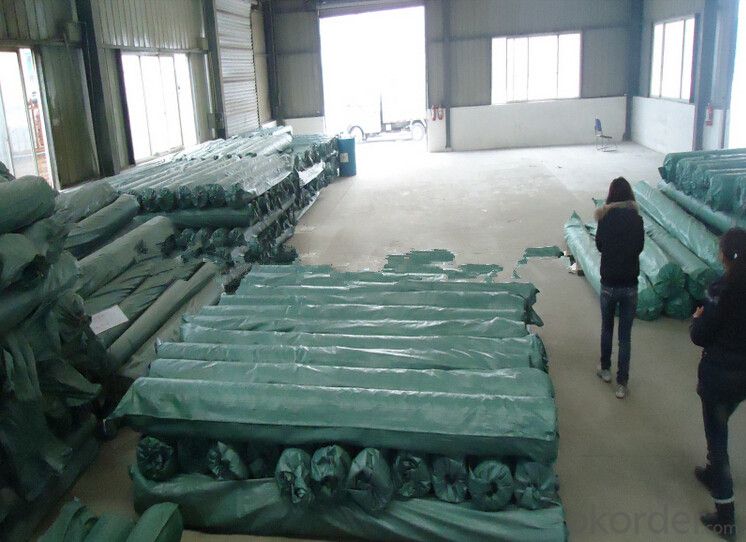
product show
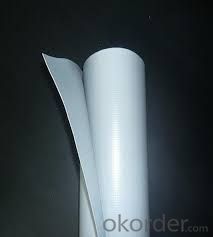
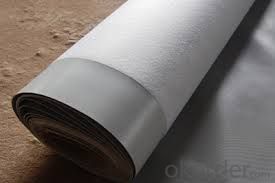
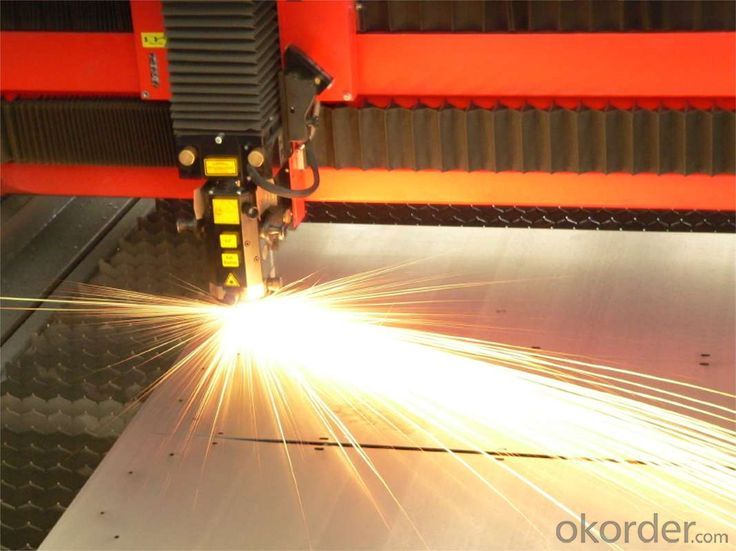
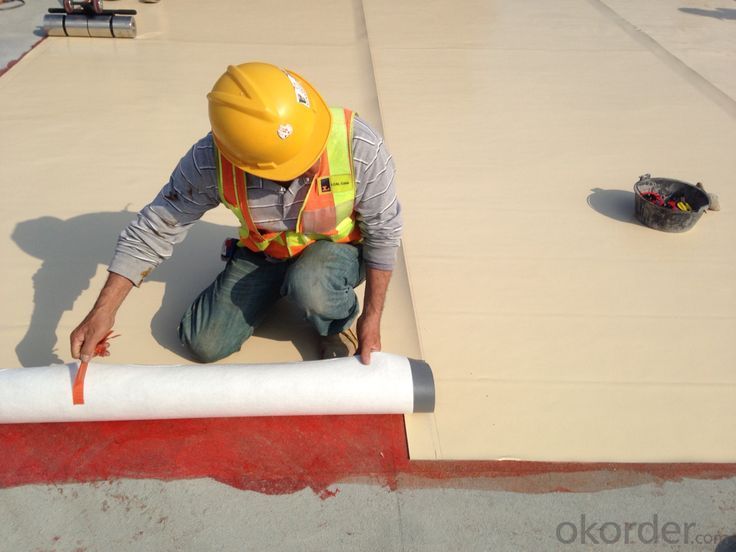
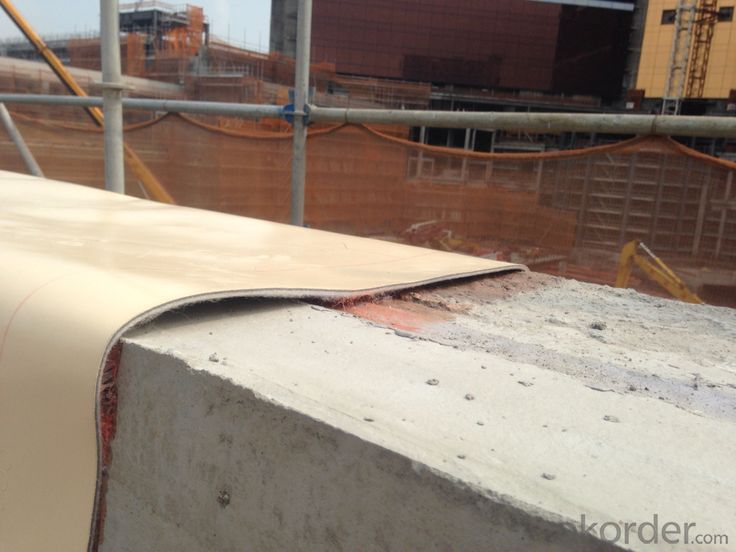
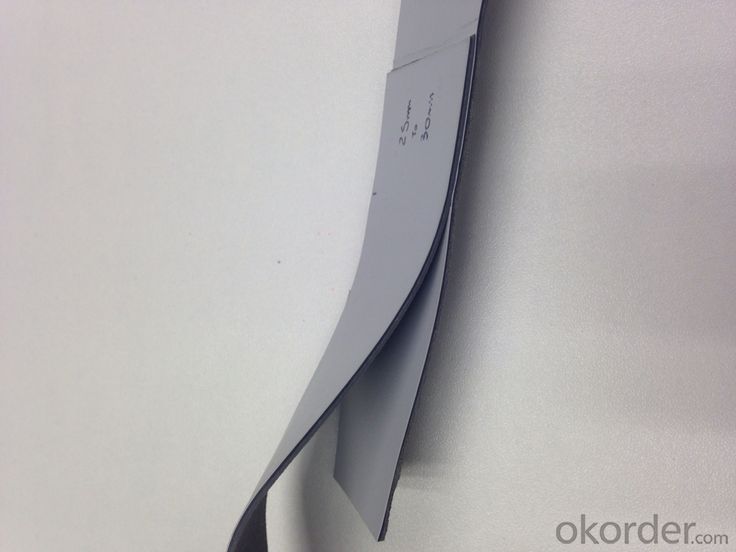
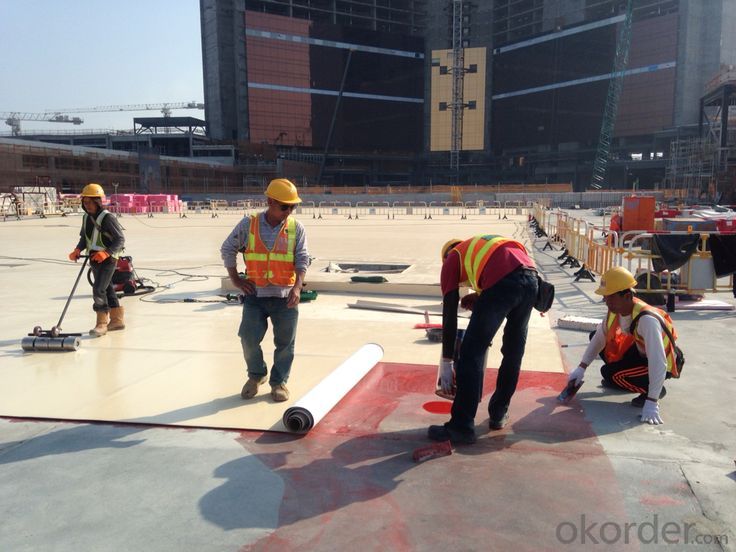
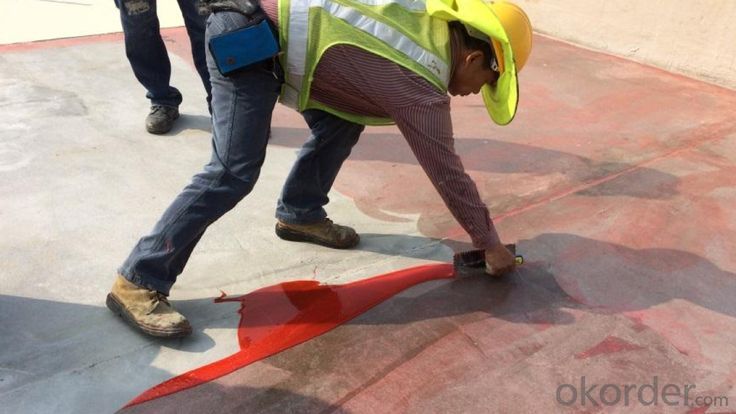
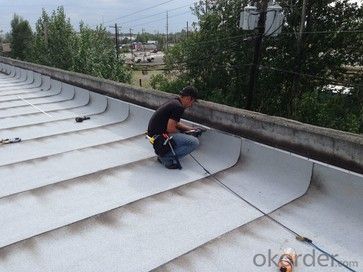
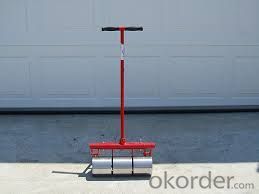
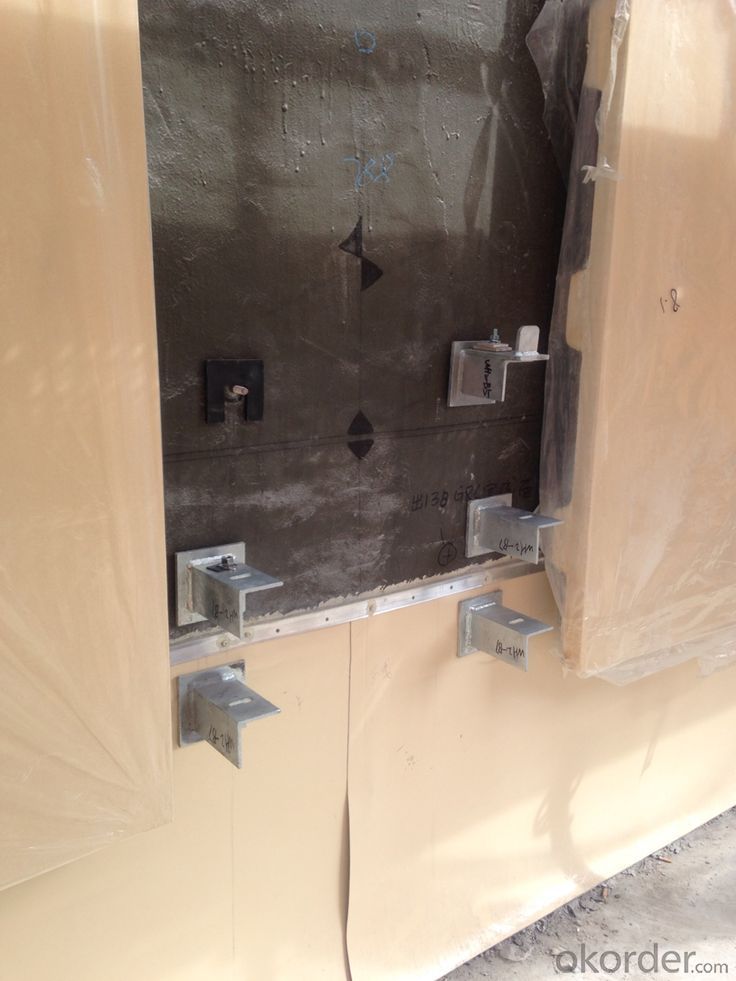
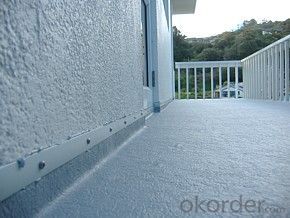
FAQ
Q: What's the delivery time ?
A: 3-5 days for 1-600 rolls, 10-15 days for container.
Q: What's the payment terms ?
A: TT/LC
Q: How do you make replacement with quality problems ?
A: New replacement will be packed into your next order or send to you directly after receive video or photo about quality problems.
- Q: Can a waterproofing membrane be used in bathrooms?
- Indeed, bathrooms can benefit greatly from the utilization of a waterproofing membrane. It is strongly advised to employ such a membrane in bathrooms as a preventive measure against water-related harm and leakage. Typically, this membrane is applied to both the walls and floors, establishing a protective barrier that inhibits water infiltration, subsequently averting structural deterioration or the proliferation of mold. This is particularly crucial in areas of heightened water exposure, such as showers and the vicinity of bathtubs. These waterproofing membranes are engineered to endure moisture and offer enduring safeguarding, thereby assuring the soundness of the bathroom and prolonging its longevity.
- Q: Are waterproofing membranes suitable for residential basements?
- Yes, waterproofing membranes are suitable for residential basements. Waterproofing membranes are designed to prevent water infiltration and protect the basement from moisture damage. They can be applied to the exterior or interior of the basement walls to create a barrier against water and dampness. This helps to prevent issues such as mold growth, water damage, and structural deterioration. Waterproofing membranes are an effective solution for residential basements as they provide long-lasting protection and can help to create a dry and healthy living environment.
- Q: Can waterproofing membranes be used on foundation walls?
- Indeed, it is possible to utilize waterproofing membranes on foundation walls. These membranes possess a specific design that aims to impede the infiltration of water and are commonly employed on foundation walls to safeguard against moisture and water-related harm. Typically, these membranes consist of resilient materials like rubberized asphalt, thermoplastic, or PVC, which exhibit durability and resistance to water penetration. The installation of these membranes occurs on the outer side of the foundation walls, thereby serving as a highly efficient barrier against water, effectively averting its seepage into the basement or crawl space. Without a doubt, waterproofing membranes constitute an indispensable element in the realm of building construction, as they actively contribute to the preservation of the foundation's structural integrity, preventing adverse consequences such as water damage, mold growth, and foundation settlement.
- Q: Can a waterproofing membrane be used in conjunction with soundproofing materials?
- Yes, a waterproofing membrane can be used in conjunction with soundproofing materials. In fact, it is quite common to use both of these materials together in construction projects. Waterproofing membranes are typically used to prevent the penetration of water into a structure, while soundproofing materials are used to reduce noise transmission. These two materials serve different purposes but can be used simultaneously to provide both waterproofing and soundproofing benefits. For example, in a building with a basement or a bathroom, a waterproofing membrane can be installed on the walls or floors to prevent water infiltration, and then soundproofing materials can be added on top of the membrane to reduce noise transmission from adjacent areas. By combining these two materials, a building can be protected from water damage while also providing a quieter and more comfortable environment for its occupants.
- Q: Can a waterproofing membrane be used on concrete block surfaces?
- Concrete block surfaces can indeed benefit from the application of a waterproofing membrane. These membranes are specifically designed to act as a shield against moisture and water infiltration, which makes them a popular choice for safeguarding concrete block surfaces against water-related harm and leaks. To achieve this, the membranes are either applied as a liquid or in sheet form, bonding to the surface of the concrete blocks and forming a protective layer that prevents water from seeping through. By reducing the risks of water damage, mold growth, and deterioration, the lifespan of the concrete blocks can be extended with the help of this waterproofing membrane. It is crucial to select a membrane that is specifically tailored for concrete block surfaces, and to follow the manufacturer's instructions carefully during installation to ensure optimal results.
- Q: Can a waterproofing membrane be used for plant rooms and mechanical equipment areas?
- Yes, a waterproofing membrane can be used for plant rooms and mechanical equipment areas. Plant rooms and mechanical equipment areas often require waterproofing to protect the equipment and surrounding structures from water damage. A waterproofing membrane is a commonly used solution for this purpose. It creates a barrier that prevents water from penetrating into the plant rooms and mechanical equipment areas, ensuring that the equipment remains dry and protected. The waterproofing membrane also helps to prevent moisture-related issues such as mold and mildew growth, which can be detrimental to the operation of the equipment and the overall functionality of the plant room. Overall, using a waterproofing membrane in plant rooms and mechanical equipment areas is a reliable and effective way to ensure the longevity and performance of the equipment and structures.
- Q: Roof SBS waterproofing membrane additional layer needs to be wide
- Asphalt waterproofing membrane is in the base tire (such as base paper, fibrous fabric) dip on asphalt, and then spread in the surface of powder or sheet of the isolation material made of curled sheet waterproof material.
- Q: Does a waterproofing membrane require any specific cleaning methods?
- Specific cleaning methods are required for a waterproofing membrane. To maintain its effectiveness and longevity, regular cleaning is important. The type of membrane being used will determine the specific cleaning methods, as different materials may have different requirements. It is generally advised to use gentle cleaning solutions and tools, such as a soft brush and mild detergent, to clean the membrane. Avoiding harsh chemicals or abrasive materials that could cause damage is crucial. Furthermore, regularly inspecting the membrane for signs of damage or debris buildup is essential. Addressing these issues promptly can prevent further damage and ensure continued effective waterproofing. It is highly recommended to consult the manufacturer's guidelines and recommendations for proper care and maintenance of the waterproofing membrane.
- Q: Can a waterproofing membrane be used for a parking garage?
- Yes, a waterproofing membrane can be used for a parking garage. A waterproofing membrane is designed to provide a barrier against water infiltration, protecting the underlying structure from moisture damage. In a parking garage, where exposure to water and moisture is common due to rain, snow, and vehicle fluids, a waterproofing membrane can be a crucial component of the building envelope system. It can be applied to the concrete surfaces, including the floor and walls, to prevent water from seeping into the structure and causing deterioration, corrosion, or damage to the integrity of the parking garage. Additionally, a waterproofing membrane can also help to mitigate the risk of efflorescence, mold, and mildew growth, which can be common in damp environments. Therefore, using a waterproofing membrane in a parking garage is an effective way to ensure the long-term durability and functionality of the structure.
- Q: What is rigid waterproof, flexible waterproof?
- 1, rigid waterproof means that: waterproof layer by the tensile force is greater than the tensile strength of waterproof materials (including settlement deformation, temperature deformation, etc.), waterproof layer of brittle cracking caused by leakage of water, known as rigid waterproof. (Especially the "water leakage" waterproof layer), waterproof concrete mortar waterproof layer, thin layer of inorganic rigid waterproof layer (such as "water leakage" waterproof layer), and so on.
Send your message to us
Roof or Underground PVC Waterproof Membrane
- Loading Port:
- Tianjin
- Payment Terms:
- TT OR LC
- Min Order Qty:
- 2000 m²
- Supply Capability:
- 10000 m²/month
OKorder Service Pledge
OKorder Financial Service
Similar products
Hot products
Hot Searches
Related keywords
